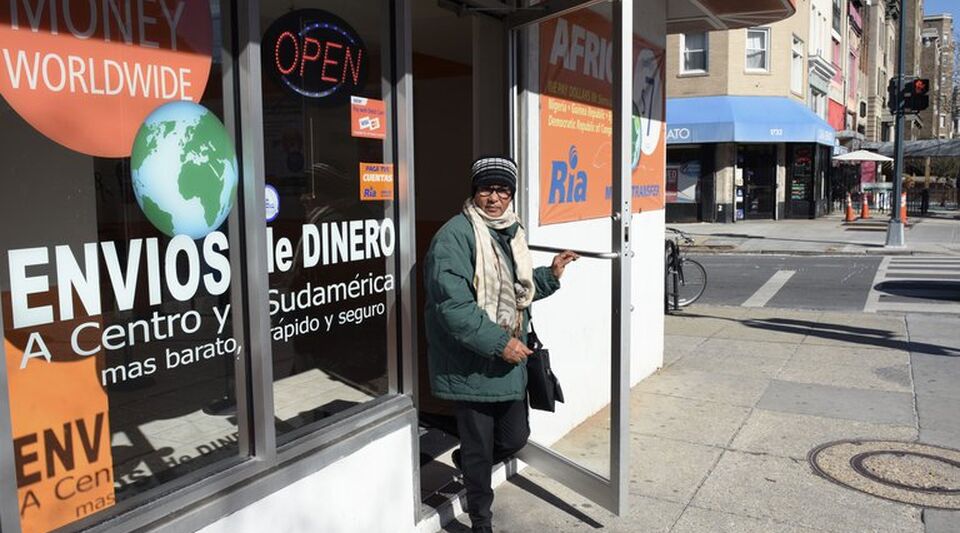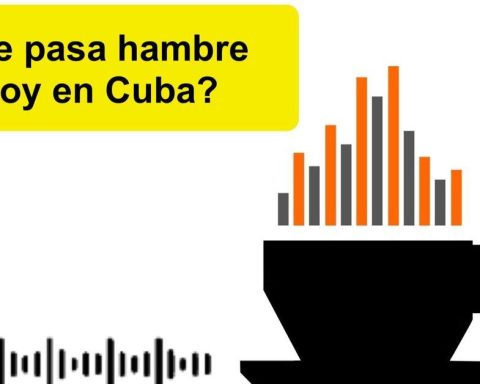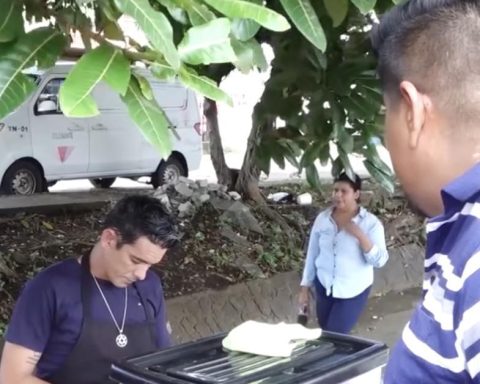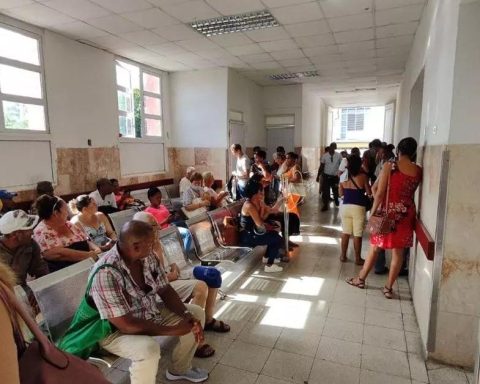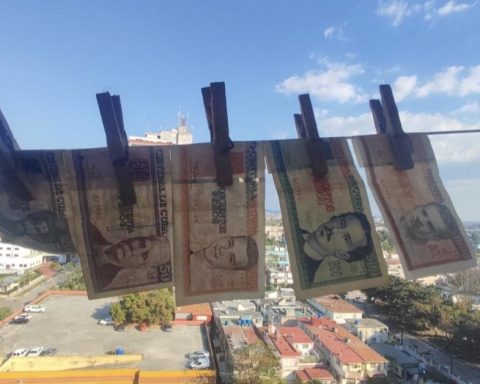Javier has a gastronomic business in Central Havana where tourists and locals meet who pay for their services indistinctly in pesos and dollars or euros, currencies that the businessman does not intend to miss. His Spanish passport has allowed him to open an account in a bank in the European country that he uses for a double purpose, to withdraw his earnings from the Island and to act as an informal remittance delivery agency.
There are several Cuban emigrants in Spain who know the services of Javier (fictitious name). The mechanism is simple: they deposit in their account the money they want to send to their relatives in Cuba and 12 euros as a “commission”. On the other side of the Atlantic, he makes an appointment at the home of the beneficiaries at the agreed time for the deposit and, once he receives confirmation that the transfer has been made on his cell phone application, he delivers the corresponding amount in cash. to Cuban relatives.
In this exchange, everyone wins. Javier secures his foreign currency in a foreign bank and obtains extra money; relatives on the island receive the highly valued euros that they cannot get in Cuba, or their equivalent in pesos that are almost impossible to obtain at ATMs; and the emigrants avoid the Cuban banks in their operations, a very widespread desire among many of those who have fled the regime, the only loser in this network, for not seeing or smelling the passage of money.
The regime is the only loser in this framework, for being left without seeing or smelling the passage of money
Cuban creativity continues to serve the needs of the moment. The business is similar in part to what El Nuevo Herald revealed this Friday, although only in terms of passing through the entities on the Island. The Miami newspaper has talked to various agencies of remittances in the city of Florida that contribute to finance the private sector on the Island with the money sent by Cuban-Americans.
In this case, the network works like this: the owner of the private business in Cuba places an order through the remittance agency, which is in charge of buying and sending the product to the island with a fund created from the deposits of the relatives. When the cargo is delivered, the owner reimburses the cost in pesos or foreign currency to the agency’s office in Cuba, in addition to a payment for the intermediary service.
The benefit for the agency is to ensure the cash on the Island for the payment of remittances, since bank transfers are impossible from the US due to the embargo. “From a bank’s compliance perspective, it’s not appropriate at all,” he told The New Herald one of the Cuban clients who benefits from the system. “But from another perspective, we are talking about the first time in recent history that the Cuban government does not have access to these dollars or any of the funds from these operations.”
The Island businessmen interviewed point out that the ideal would be the existence of a specific bank for the private sector, but they believe that this alternative, while not being adequate, is the best.
Another of the interviewees points out that moving money internationally is very complex even if third countries are used, because the banking system is closely intertwined with US banking and, without having foreign nationality –like Javier– or being married to a citizen from another country, it is almost impossible to have an account abroad.
The ‘Herald’ points out that these alternative solutions are an unexpected consequence of the measures taken by the Administration of Donald Trump
He Herald points out that these alternative solutions are an unexpected consequence of the measures taken by the Donald Trump Administration. With the ban on remittances going through banks run by the military—the only route available in Cuba—many agencies were forced to go out of business but other routes began to proliferate. The first solution was muleswith the risks and limitations of carrying money with you, but the pandemic and border closures have expanded the limits of imagination.
Sources from the Biden government told the Miami newspaper that they are “very closely analyzing” everything they can do to facilitate access to the financial system for private businesses. “This is one of the main things, if not the main thing, that small Cuban businessmen who want to do things well and be respected have asked us,” said an official.
The New Herald also posted this Thursday a report in which he addresses the situation of the new private companies that, for the director of the Cuba Study Group, “are scaling businesses to a degree that was unimaginable just a couple of years ago.” Oniel Díaz Castellanos, founder of the Cuban consultancy Auge, told the Miami newspaper that the proliferation of these businesses is a paradigm shift on the island.
Far from the perception that resides in a good part of society that the MSMEs are functioning as an extension of the arms of the regime and contributing to inflation, the report is more in line with the positive vision of Cuban economist Pavel Vidal, that just a few weeks ago pointed out that there are many unfounded prejudices. “A part of the ruling party that does not want reforms will be very happy today with the pessimistic vision that seems to be generalized about SMEs,” she argued.
However, some merchants consulted by ’14ymedio’ once again show off their ability to overcome the difficulties faced by citizens
In the text of the Herald, those consulted share this vision and consider that it is a fact that its prosperity reduces the money that goes to the state coffers. However, the text admits the suspicions that many still show towards these new entrepreneurs – many of them from the opposition, because they are “far from political polarization” – and limitations, especially with regard to imports, since the The regime maintains exclusivity in this field, as well as in that of exports.
However, some traders consulted by 14ymedio once again display the ability to overcome the difficulties faced by citizens.
“We have already been learning which are the importing entities that do everything faster and more efficiently,” says the accountant of a small company that buys food abroad. “A good encouragement to the workers who attend directly to the MSMEs It helps a lot and almost all the work of contacting the supplier and managing shipping, freight and others is done by us. When they sign and stamp the import certificate, everything is done on our part, they just need to validate it.”
________________________
Collaborate with our work:
The team of 14ymedio He is committed to doing serious journalism that reflects the reality of deep Cuba. Thank you for accompanying us on this long road. We invite you to continue supporting us, but this time becoming a member of our newspaper. Together we can continue transforming journalism in Cuba.
